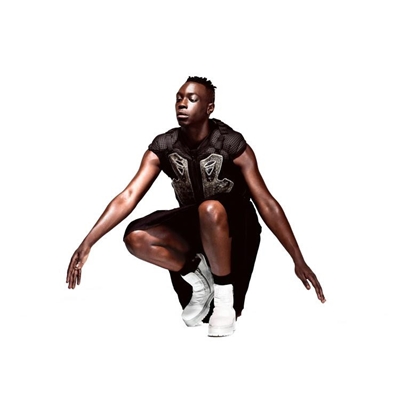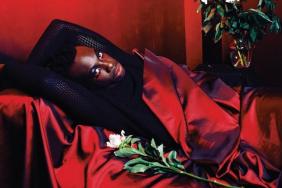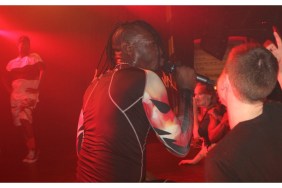We are in a time of intersectionality. The boundaries that seemingly predicated gender, sex, sexuality and race are continuously warping and overlapping. The two-face narratives of the ‘male/female’, ‘straight/gay’ and ‘white/black’ are losing their keenness in a world of diversity and disruption.
A new (hardly new) performative stance – post-colonial, post-modern, post-gender – is critiquing the huge, hegemonic bilateralism of western socio-cultural discourse. Le1f and his cohort – House of LaDosha, Dev Hynes, Junglepussy and SOPHIE to name a few – are word-warriors and artists set to change and challenge the cultural landscape.
Le1f is but one of many seeking to bulldoze the oligarchic classism and snobbery that veils the ‘un- and under-represented’. His romps and rhymes carve clean swathes across the curtains that conceal. In his muddy wordplay he touches on the complex force of femininity, cultural effacement, internalised homophobia, misandric behaviour, and lots more.
As an example, Le1f’s Umami/water celebrates the indomitability of transwomen, thus broadening the still narrow horizon of sex-identity. More specifically, by creating a referential relationship between the song and trans icon Juliana Huxtable, Le1f plugs his music into her artistry. At this year’s New Museum Triennial, Frank Benson’s statue of a naked Huxtable powerfully appropriated the grecian sculpture, Sleeping Hemaphroditus. We have a green, metallic goddess flinging the ‘mudra’ hand sign, unabashed by having the body parts of both sexes.
It is this strong and shameless assertion of difference, aesthetic and identic, that characterises Riot Boi. Le1f has transformed from the firespitting rap-queen on a hunked-up pikachu’s lap, to a wuzzy wizard whose murk-music and disruptive lyrics change the game. His powerful communiques demonstrate that the well-educated and self-aware artist understands art as activistic as well as aesthetic.
Such blatant political and social commentary was championed by one of Le1f’s heroines, M.I.A., who shook the dancehall with her politic but playful, Arular. Just like M.I.A., Le1f has aimed to create club-ready songs with sociopolitical declarations roughhousing every hook and bar. For the most part, he has succeeded
From a sonic perspective the album is a sound-scattergun. It’s production moves from watery, multi-layered grime, to the pastel pink soundscapes of 90s nintendo and then to hard but weed-weezy club music. These multifarious sound experiments in ice and fire are born from the genius of producers like Lunice, Evian Christ and Blood Diamonds.
But the consistent element across the entirety is Le1f’s twisting and turning voice, which moves with the elasticity of a contortionist. Something really has to be said about Le1f’s masterful manipulation of the phonetics and morphology of words. All of their parts seem to bend and balloon under the command of his tongue. Things get even better when he is accompanied by the monster-MCs from House of LaDosha and Junglepussy on Swirl.
So the point my dear readers: Riot Boi is very good. It is good art, in the sense that its aesthetic, conceptual and political aspects are all deftly crafted. It also deserves a deep, lonesome listen. Only then will you hear the musings of a switched-on, fire-breathing activist. Burn Le1f, burn.
–
‘Riot Boi’ is out now, grab a copy here.
Listen: Le1f – Rage













